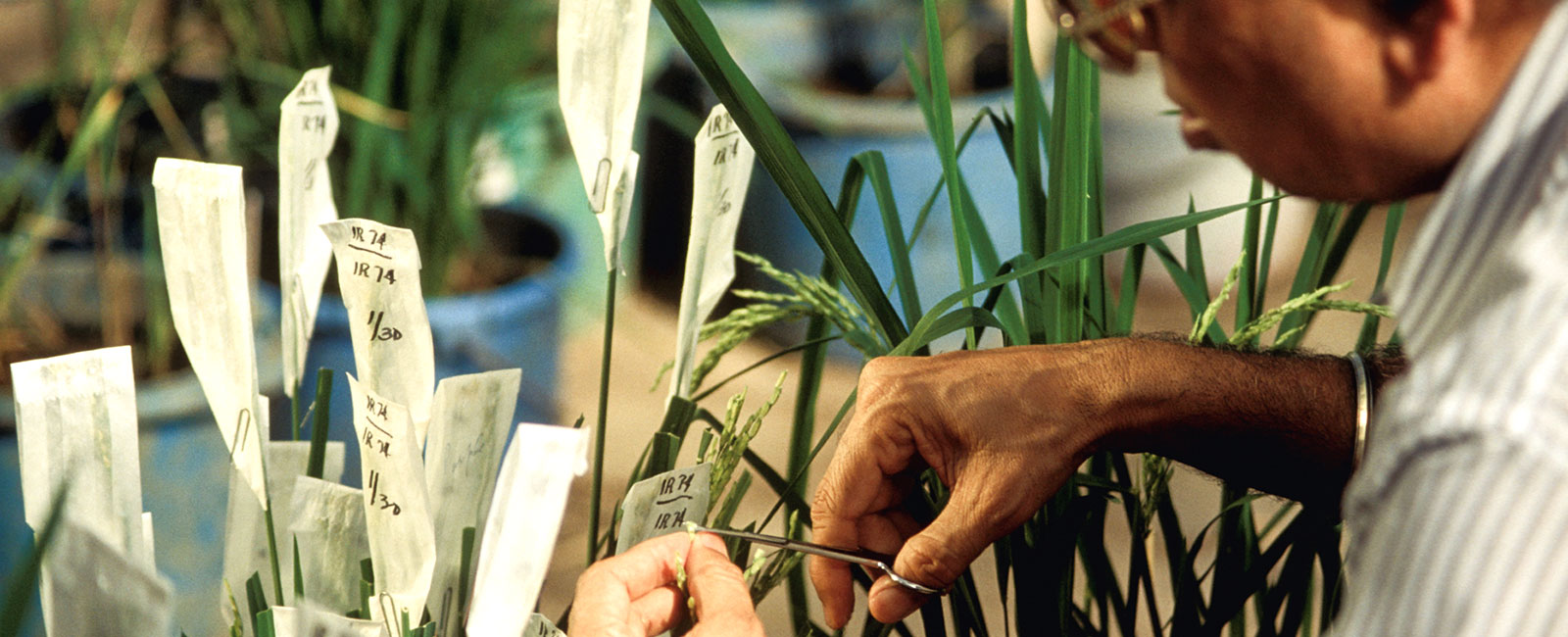The IRRI wins the BBVA Foundation Frontiers of Knowledge Award in Development Cooperation for mobilizing rice knowledge to alleviate hunger
The BBVA Foundation Frontiers of Knowledge Award in the Development Cooperation category goes in this third edition to the International Rice Research Institute (IRRI) for its contribution to “reducing poverty and hunger in the world by means of rice research and farmer training”, in the words of the jury’s citation.
25 February, 2011
The IRRI is deemed to merit the award “for the quality of its research work, which has led to the development of new rice varieties adapted to different cropping areas in Asia and providing improved yield and sustainability across multiple climate regimes”.
The jury also singled out “its success in transferring the results of its research, by working with local teams and organizations in Asian and sub-Saharan countries and making its varieties freely available to farmers. By this means, the IRRI has secured the effective dissemination of its innovations with the resultant increase in production of this basic crop”.
The IRRI was nominated for the award by Japan’s National Graduate Institute for Policy Studies.
The International Rice Research Institute is a non-profit agricultural research and training center based in Los Baños in the Philippines, whose goal is to improve the quality of life of communities where rice is a subsistence food. Founded in 1960 with support from the Ford and Rockefeller Foundations and the Philippine government, today’s IRRI enjoys the partnership of numerous agricultural and food institutions, as well as other non-profit organizations like the Bill and Melinda Gates Foundation.
The IRRI, the jury affirms, “has helped to improve the food security and the agricultural base of people living in less developed countries, and thereby assist them in their economic take-off. For all these reasons the IRRI stands as a clear example of scientific research applied to development goals”.
Over the last five decades, the Institute has had an instrumental role in boosting rice production levels, especially in Asia. Through an intense research effort and commitment to knowledge transfer from the laboratory to the farm, IRRI scientists have introduced higher-yielding rice varieties that are more disease resistant and use less water. The next step is to investigate ways to reduce the pesticide use and environmental damage associated to rice cultivation in the past.
The IRRI has also set up the International Rice Genebank, the largest in the world, whose more than 100,000 types of cultivated and wild rice provide important insurance against biodiversity loss. This bank is a resource for researchers using traditional and biotech methods to search for rice varieties able to resist the vicissitudes of climate change, such as altered temperatures and rainfall patterns and a higher incidence of drought.
Another facet of the Institute’s work is its role in training farmers and agricultural researchers in developing countries.
In the last few years, the IRRI has begun to extend its scientific and training efforts to parts of Africa and Latin America.
The importance of the rice crop
Rice is the staple food of more than half the world’s population. In Asia, average annual consumption is currently 108 kilos per head, while the inhabitants of sub-Saharan Africa consume an average of 33 kilos.
Back in the 1950s, there was a real danger that population growth in Asia could cause shortages of food and even bring about a situation of famine. It was to prevent this from happening that the IRRI was born.
Today, the global market for rice is still growing fast. According to the FAO, a total of 151 million hectares worldwide are given over to rice cultivation, of which 132 million are in Asia and 8 million in Africa. And some forecasters say that to keep up with worldwide demand, output levels will have to increase by about 70 percent in the next two decades.
The potential for significant increases in rice yields is greatest on non-irrigated land, where yields are particularly low. The farmers who cultivate this land are some of the poorest in the world, and helping them grow their crop more efficiently will not only improve their quality of life but will also contribute to meeting the rising demand for rice.


